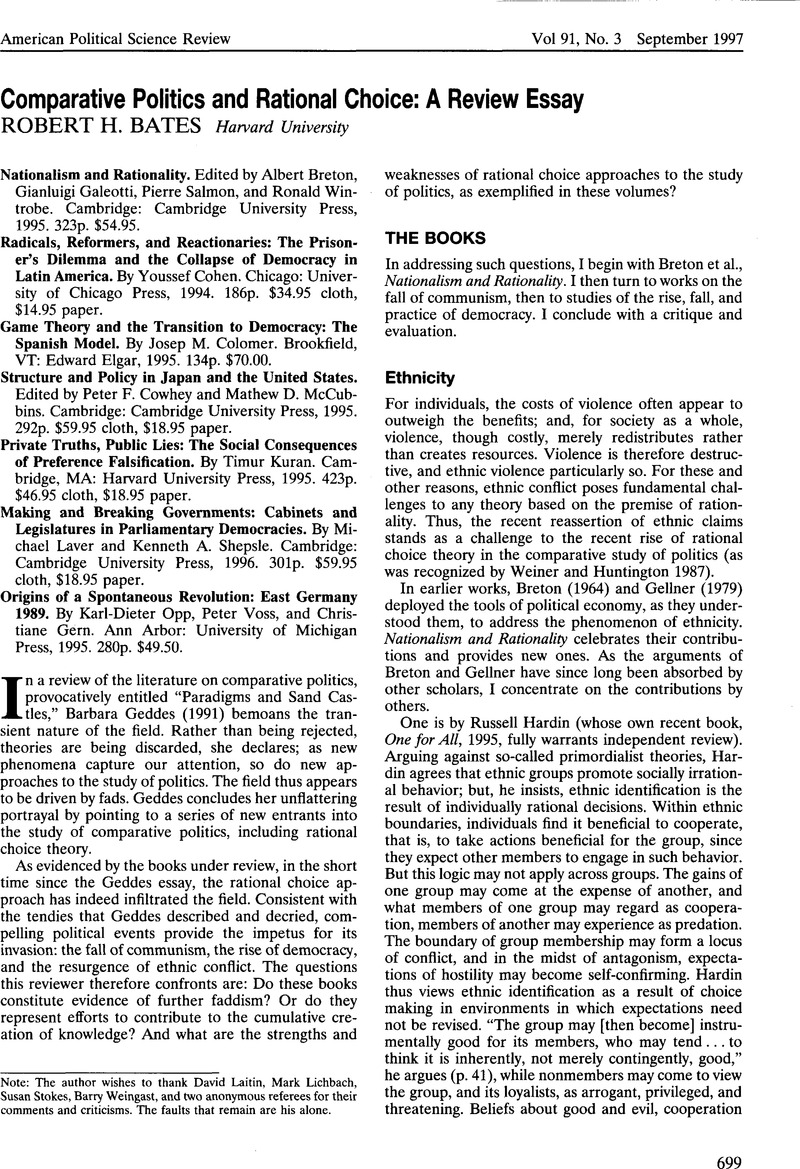Crossref Citations
This article has been cited by the following publications. This list is generated based on data provided by Crossref.
Thelen, Kathleen
1999.
HISTORICAL INSTITUTIONALISM IN COMPARATIVE POLITICS.
Annual Review of Political Science,
Vol. 2,
Issue. 1,
p.
369.
Hull, Adrian Prentice
1999.
Comparative Political Science: An Inventory and Assessment since the 1980's.
PS: Political Science & Politics,
Vol. 32,
Issue. 1,
p.
117.
Hull, Adrian Prentice
1999.
Comparative Political Science: An Inventory and Assessment since the 1980's.
PS: Political Science & Politics,
Vol. 32,
Issue. 1,
p.
117.
Epstein, Lee
and
Knight, Jack
2000.
Toward a Strategic Revolution in Judicial Politics: A Look Back, A Look Ahead.
Political Research Quarterly,
Vol. 53,
Issue. 3,
p.
625.
Munck, Gerardo L.
2000.
Teoria dos jogos e política comparada: novas perspectivas, velhos interesses.
Dados,
Vol. 43,
Issue. 3,
p.
559.
Epstein, Lee
Shvetsova, Olga
and
Knight, Jack
2001.
The Role of Constitutional Courts in the Establishment and Maintenance of Democratic Systems of Government.
Law & Society Review,
Vol. 35,
Issue. 1,
p.
117.
Schmitz, Hans Peter
2004.
Domestic and Transnational Perspectives on Democratization.
International Studies Review,
Vol. 6,
Issue. 3,
p.
403.
Pedriana, Nicholas
2005.
Rational Choice, Structural Context, and Increasing Returns.
Sociological Methods & Research,
Vol. 33,
Issue. 3,
p.
349.
Smith, Lahra
2007.
Africa in the Political Science Curriculum.
Journal of Political Science Education,
Vol. 3,
Issue. 3,
p.
313.
Jun, Uwe
2007.
Schlüsselwerke der Politikwissenschaft.
p.
225.
Moody, Peter R.
2008.
Rational Choice Analysis In Classical Chinese Political Thought: TheHan Feizi.
Polity,
Vol. 40,
Issue. 1,
p.
95.
Vallbé, Joan-Josep
2015.
Frameworks for Modeling Cognition and Decisions in Institutional Environments.
Vol. 21,
Issue. ,
p.
13.




Comments
No Comments have been published for this article.